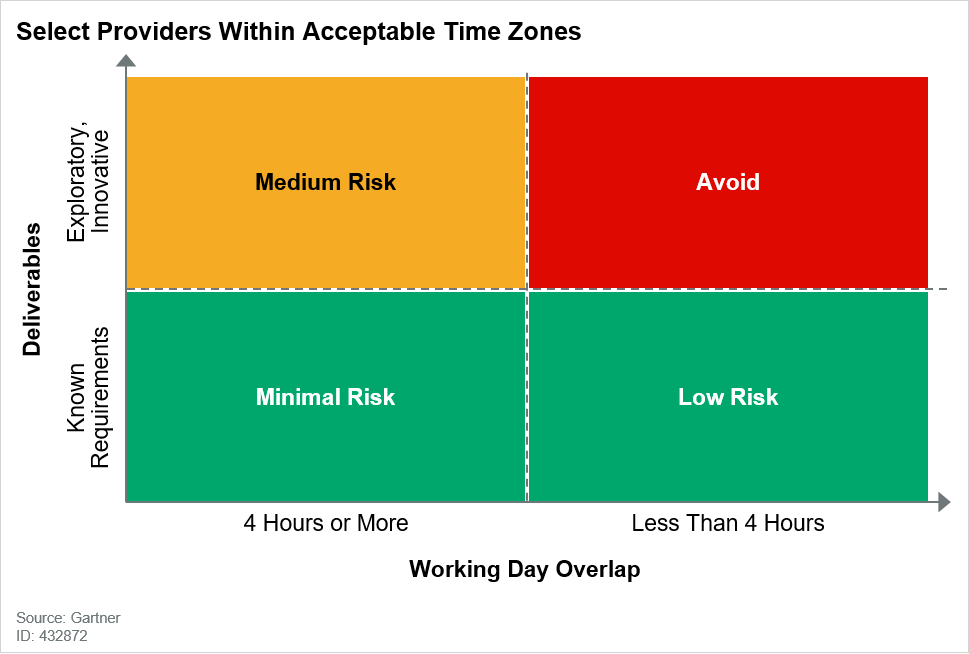Developing any software for your business or customer is not an easy task. While enterprises have their own IT and software development departments, small and medium enterprises (SMEs) usually don’t have enough resources to have an IT team of their own. So, they often outsource their software and app development needs.

Outsourcing is an effective way to get the job done without hiring more employees, securing more office space, and obtaining more resources.
IT offshoring is a rapidly growing business. According to a research report, global IT outsourcing was estimated at $333.7 billion in 2019, and it will reach $397.6 billion by 2025 with a compound annual growth rate of 4.5%.
Before outsourcing, it is crucial to understand the differences, pros, and cons of onshore and offshore software development services.
What Are Onshore and Offshore Software Development Models?
Both onshore and offshore models consist of remote teams that work for your business needs. These remote teams and service providers offer a wide range of benefits.
What Is Onshore Software Development?
If a company hires a freelancer or an agency for their software development needs within their own country and region, it is called onshore software development. You and your partner company share similar time zones, language, rules, and regulations.
Onshore software development outsourcing is a prevalent practice for many companies; however, offshore software development is rising because the world is now connected more than ever. Sharing information, money, and services are made easy.
Advantages of Onshore Software Development
Many companies are more comfortable outsourcing their software development needs to local freelancers and agencies. They want to promote local businesses and their country’s economy, or they don’t trust foreign work quality and regulations. Following are the advantages onshore software development outsourcing offers:
In-Person and Face-to-Face Collaboration

Through onshore software development, companies can travel within the country for meetings. Offshore development doesn’t have that luxury of easy and convenient in-person conferences due to long distances and travel time. In-person communication provides a more in-depth project analysis and offers better results.
For offshore outsourcing, face-to-face meetings are not accessible. So, you might have to get a visa or take time out of your busy schedule for international travel to meet with your software developers.
The output is much better and more effective when you describe your requirements and expectations in an on-site meeting with the onshore software development company or individual.
No Language Barriers
Language plays an essential role in effective communication and understanding. When your company outsources software development to onshore companies and individuals, you can easily discuss your project’s terms, conditions, and requirements.
For US-based companies that want to outsource their project to an offshore software development agency where English is not the official language, communication may be difficult.
Due to communication errors, the final product might have defects and other irregularities. Outsourcing within your country gives you the advantage of quick communication, timely response, and better understanding with a quality product and efficient results.
No Cultural Barriers
For fast and seamless product delivery, outsourcing within your country is a good option. Outsourcing within your country helps you stay on schedule as you and your partner company or individual will probably have the same cultural values. Holidays will not conflict, and the project will proceed according to your timeline.
Effective Coordination and Interactions
The sales and design teams work together to achieve the goal in the same time zone and same language. Same time zones allow us to answer the questions and queries of the onshore development team quickly. The process of gathering requirements for software development becomes easy.
Disadvantages of Onshore Software Development
Onshore software development has some cons too, which are:
Higher Cost
The cost factor is one of the biggest reasons companies hire offshore software development agencies and individual developers. In the US, companies have to bear an average of $157,570 for hiring a third party for software development.
Software developers in America charge more than those from developing nations due to their economic situation. The experience and skills of the developers add more to the cost.
Lack of Availability of Software Developers and Companies in the US

Finding software developers and companies who create software within America is a time-consuming and challenging task. There is a shortage of skilled IT and software developers in the US, and sometimes outsourcing is the only option left for businesses.
Unfortunately, the average growth rate of software developers in the US is only 8%. The vacant number of unfilled IT jobs in the US in 2019 was one million. There are chances that you can end up in unprofessional and inexperienced hands if you hire someone in a hurry.
Professional software developers most likely have a backlog of pending projects, meaning your project may be placed on hold and delayed.

Gain valuable insight into onshore and offshore software development with our executive’s guide.
Read Our Guide
What Is Offshore Software Development?
Offshore software development refers to outsourcing software, application, and web development to freelancers or companies outside your country; they could be anywhere globally. It is the opposite of onshore software development.
Advantages of Offshore Software Development
Many companies now are outsourcing their software development needs to offshore software developing entities for various reasons. Here’s their advantages.
Lower Cost

There is a shortage of developers and companies in the US. Other companies in the world are providing the same services at more affordable rates than US firms. Countries like China, India, Ukraine, and the Philippines are providing cheap software development services across the globe with an average hourly rate of $25-$50.
Outsourcing to offshore companies is a cost-saving factor for businesses operating on a tight budget. Service providers in developing countries sell their services at a low cost due to high competition or low cost of living.
With growing globalization, offshore companies have increased prices, but they are still low compared to the US and other developed countries.
Larger Workforce
Offshore companies have a larger workforce than onshore companies as they have more software and IT engineers. A larger workforce gives these companies the benefit of quick delivery and eliminates waiting time for your next project. Offshore companies have multiple teams on standby.
The labor cost in these countries is inexpensive, and they work on a lower pay scale than any software engineer in the US.
Larger Pool of Skills
Many people in other countries specialize in different software development skills. For companies willing to hire freelancers and agencies who only work in particular niches of software development, offshore outsourcing may be what you need.
Sometimes there is a shortage of specific people and agencies in your country that specialize in one particular task. You can find them easily overseas, and they are ready to provide you with their services at a lower cost.
Disadvantages of Offshore Software Development
Just like with onshore software enterprises, there are drawbacks for utilizing offshore companies as well.
Language Barrier

Language barriers may be a significant issue when communicating with offshore software developers. Some developers are not fluent in English. The lack of communication can become an issue in answering queries and solving problems related to project details.
An unclear understanding of the project may result in an inefficient product, resulting in lost time and resources to revise and redesign. However, many offshore companies now have sales and communication teams who are fluent in English.
Cultural Barriers
Each country has its own culture and customs, which they celebrate and enjoy. But these customs and traditions may delay your project.
Take the example of US companies outsourcing their software development needs to a Chinese software development group. The project is urgent and needs immediate attention, but the Chinese new year arrives, and the entire offshore team goes away for a seven-day vacation. In this case, your options are limited, and all you can do is wait for the holidays to end so that work can resume on your project.
Different Time Zones
Different time zones separate the world. Outsourcing to offshore firms in distant time zones can directly affect project delivery. Suppose the company is not working 24/7 and only works during their country’s business hours. In that case, you may not be in direct contact with the developers, resulting in substantial delay in communications and the flow of information.
For example, if a US company has outsourced its software development to an Indian developer, there is a time zone difference of 9 hours and 30 minutes.

Poor Quality
Hiring high-paid professionals is sometimes better than getting low-paid workers by offshore outsourcing. It can affect the quality of your product. You may not know the quality of supervision in foreign countries and whether there is a quality and efficiency check before finalizing the project.
Other concerns may relate to adherence to copyright laws and whether offshore developers are prepared to counter the challenges in software development.
Orases Will Take Care of Your Software Development Needs
If you want proven quality services, Orases is the market expert to provide onshore software needs with no barriers and drawbacks. For your software development needs, contact Orases for a consultation to explore your options.





